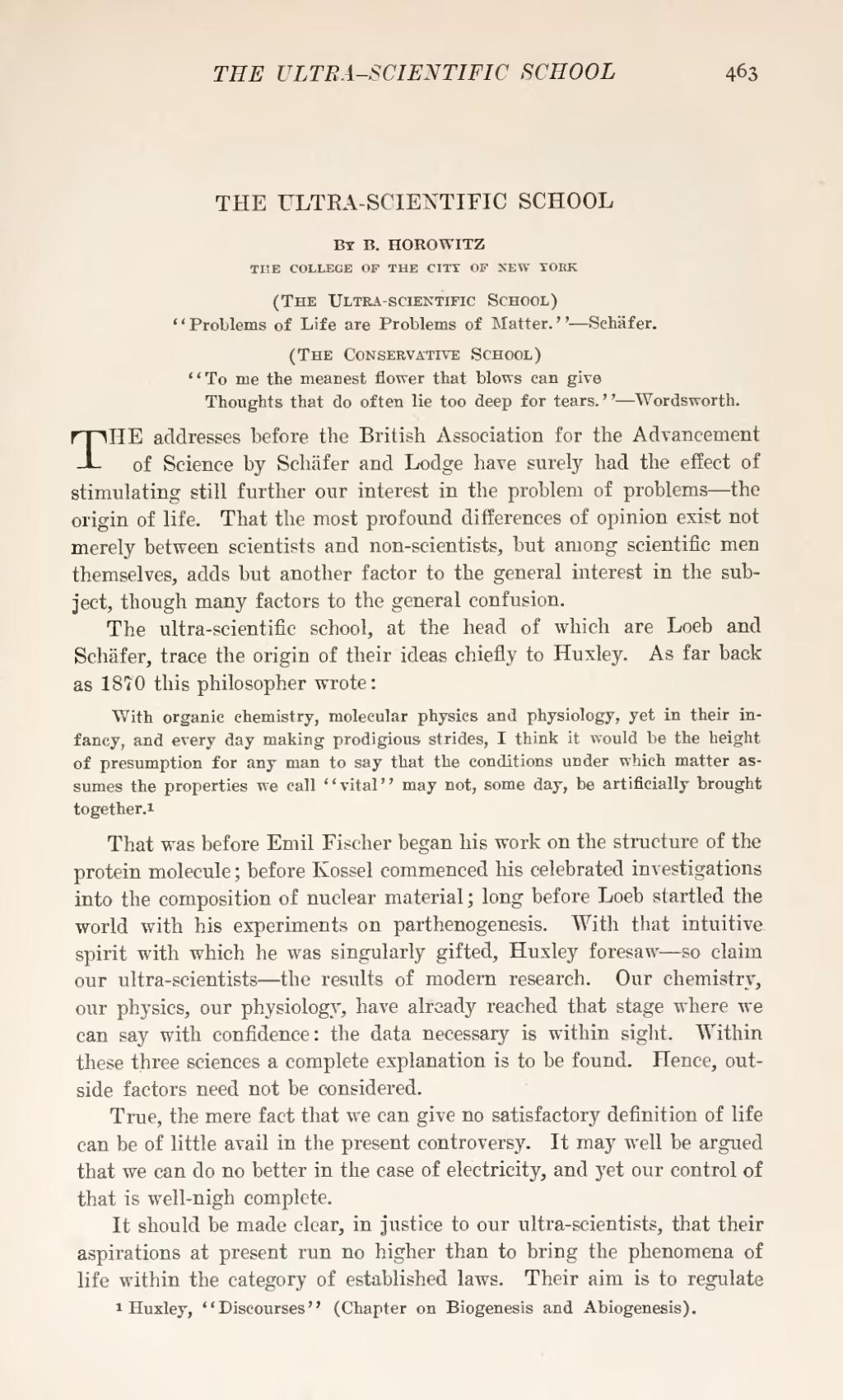| THE ULTRA-SCIENTIFIC SCHOOL |
By B. HOROWITZ
THE COLLEGE OF THE CITY OF NEW YORK
(The Ultra-scientific School)
"Problems of Life are Problems of Matter."—Schäfer.
(The Conservative School)
"To me the meanest flower that blows can give
Thoughts that do often lie too deep for tears."—Wordsworth.
THE addresses before the British Association for the Advancement of Science by Schäfer and Lodge have surely had the effect of stimulating still further our interest in the problem of problems—the origin of life. That the most profound differences of opinion exist not merely between scientists and non-scientists, but among scientific men themselves, adds but another factor to the general interest in the subject, though many factors to the general confusion.
The ultra-scientific school, at the head of which are Loeb and Schäfer, trace the origin of their ideas chiefly to Huxley. As far back as 1870 this philosopher wrote:
With organic chemistry, molecular physics and physiology, yet in their infancy, and every day making prodigious strides, I think it would be the height of presumption for any man to say that the conditions under which matter assumes the properties we call "vital" may not, some day, be artificially brought together.[1]
That was before Emil Fischer began his work on the structure of the protein molecule; before Kossel commenced his celebrated investigations into the composition of nuclear material; long before Loeb startled the world with his experiments on parthenogenesis. With that intuitive, spirit with which he was singularly gifted, Huxley foresaw—so claim our ultra-scientists—the results of modern research. Our chemistry, our physics, our physiology, have already reached that stage where we can say with confidence: the data necessary is within sight. Within these three sciences a complete explanation is to be found. Hence, outside factors need not be considered.
True, the mere fact that we can give no satisfactory definition of life can be of little avail in the present controversy. It may well be argued that we can do no better in the case of electricity, and yet our control of that is well-nigh complete.
It should be made clear, in justice to our ultra-scientists, that their aspirations at present run no higher than to bring the phenomena of life within the category of established laws. Their aim is to regulate
- ↑ Huxley, "Discourses" (Chapter on Biogenesis and Abiogenesis).

